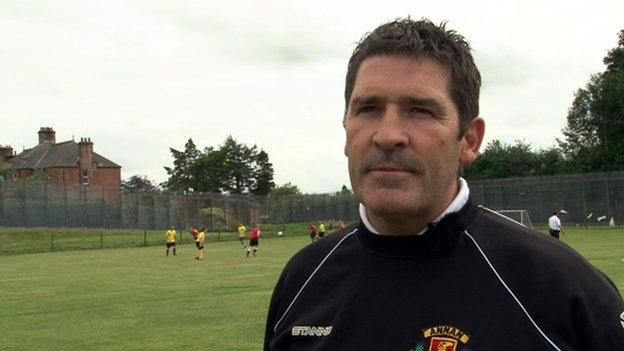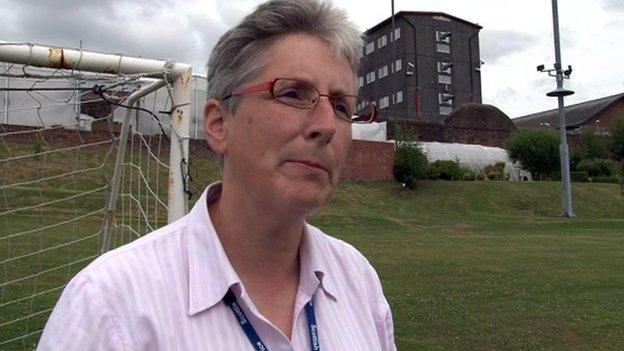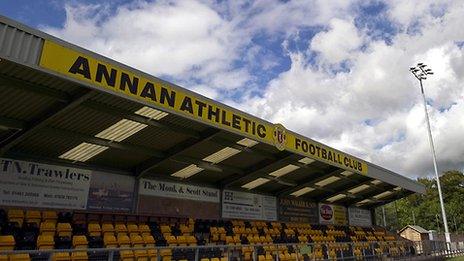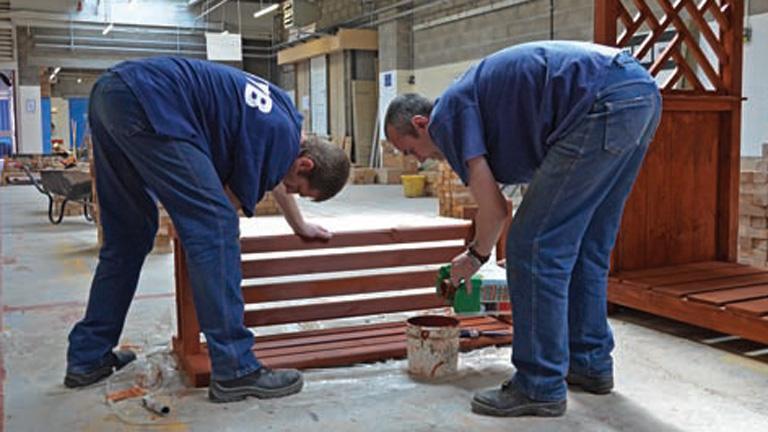Annan Athletic signs up with Dumfries Prison project
- Published
Annan Athletic FC are working with prisoners at Dumfries prison to give them a qualification in sports leadership
A Scottish League Two football side has teamed up with its local prison to help boost the "leadership, communication and confidence" of inmates.
Annan Athletic and Dumfries Prison are involved in the More Chances, More Choices project.
The inmates taking part can receive a qualification in sports leadership at the end of it.
The football coaching sessions for the prisoners are led by Annan Athletic manager Jim Chapman.
"We are using the sport of football to help engage with the guys and show them different life skills," he explained.
"It is not just about playing football and the physical benefits to taking part in sport but more importantly it is about leadership, communication and confidence.
"The guys in the prison maybe made one or two bad decisions or choices in life."

Jim Chapman takes the coaching sessions with the prisoners
The football team received a Big Lottery grant in order to carry out the work in the prison.
It has been welcomed by those on the receiving end of the coaching sessions.
"The boys have never had anything like that in this prison ever," said one prisoner.
"I have been in two or three times and this is the first time I have ever seen programmes like this being on."
Another inmate said it had provided a "bit of encouragement".
"It is a chance to progress, show that we have done wrong but we are looking to correct ourselves," he said.
"It is also a good chance to mix with the rest of the boys and obviously we are going to get a qualification out of it as well, so it is all good."
They agree that it is providing "lots of confidence" which is something that many of them are lacking.

Governor Rhona Hotchkiss said they had to try to increase the chances of changing prisoner behaviour
The project is one of a number of life skills courses being offered at Dumfries Prison.
Governor Rhona Hotchkiss said it was an important part of their work.
"We believe that everyone that comes into Dumfries Prison has the potential, the capacity to change," she said.
"Not all of them will - but it is our job to increase the number of those who do.
"That's the best way we have of protecting the Scottish public and making them safer - it is to change the lives and the behaviours of the people that come in here."
Long-term changes
She said that in order to do that they had to find a way to engage with "each and every one" of the prisoners.
"We will do anything that gets us to that level with them - whether it be cookery skills, learning to be a good neighbour or football skills, arts projects.
"Everyone has something that they are going to be interested in and we will use that as a vehicle for change."
She said that in the short-term there were benefits in health and well being and also in their behaviour and what they think about prison
"They know that they are here to change, they know that it is not just enough to come in and be static for six months or a year, they know that we have expectations," she said.
"In the longer term it is about how much we change what has been their pattern of offending."
- Published5 March 2014

- Published25 September 2012

- Published30 August 2011